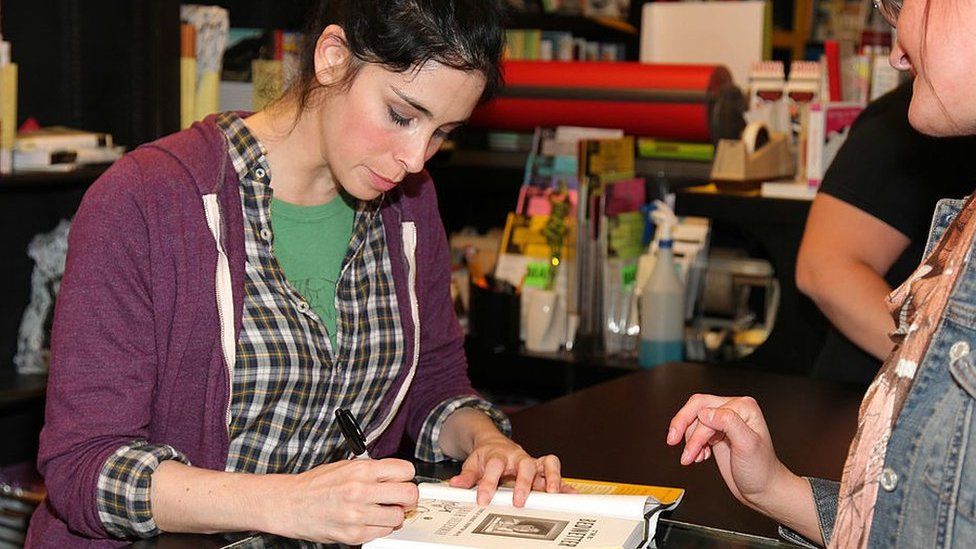ARTICLE AD BOX
 Image source, Getty Images
Image source, Getty Images
Sarah Silverman signs copies of her book
By Chris Vallance
Technology reporter
US comedian Sarah Silverman is suing ChatGPT maker OpenAI and technology giant Meta, alleging that her copyright has been infringed in the training of the firms' AI systems.
Systems like ChatGPT learn to imitate human language by analysing large datasets of human text.
Meta declined to comment. OpenAI has not yet replied to BBC questions.
Two other authors in addition to Ms Silverman are bringing the class-action case.
The case against OpenAI alleges that without the authors consent "their copyrighted materials were ingested and used to train ChatGPT."
The case against Meta, which owns Facebook and Instagram, concerns its LLaMa AI system. Initially released to a small group of users primarily working on research, the system was subsequently leaked online.
LLaMa is a "foundational large language model" designed to help AI research. In other words it's a very big AI system that can be put to use in a range of tasks.
The authors claim their books appear in a dataset, compiled by another organisation, which was used to train the LLaMa system.
Patrick Goold a reader in law at City University in London told the BBC it was likely both cases would come down to whether training a large language model is a form of fair-use or not.
The lawyers assisting the group, Matthew Butterick and Joseph Saveri, are already involved in an earlier case against OpenAI brought by two authors.
They write that "since the release of OpenAI's ChatGPT system in March 2023, we've been hearing from writers, authors, and publishers who are concerned about its uncanny ability to generate text similar to that found in copyrighted textual materials, including thousands of books".
But other legal experts have questioned whether OpenAI can be said to have copied books.
Last year the firm launched two cases, one on behalf of programmers and another on behalf of artists, who believe their rights have been infringed by AI systems.

 1 year ago
26
1 year ago
26








 English (US)
English (US)